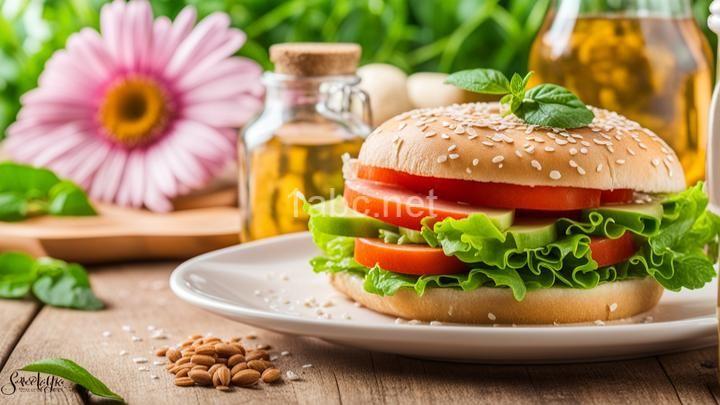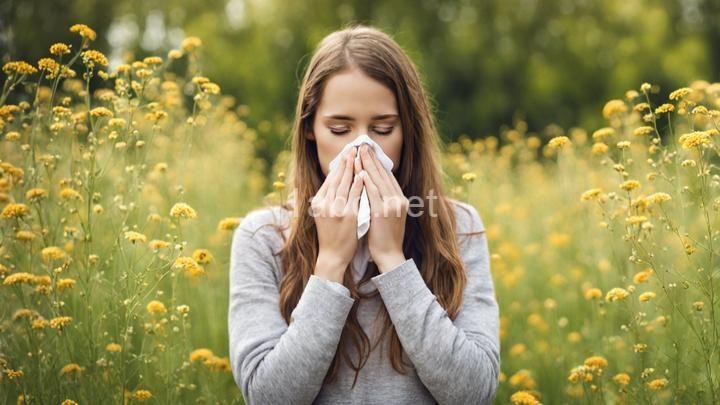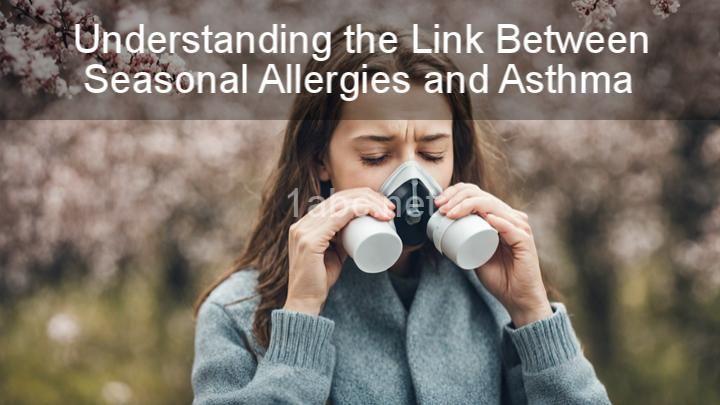The Role of Diet in Allergies: Foods to Include and Avoid for Better Health

Introduction:
Allergies have become increasingly common in today's world, impacting the health and well-being of millions of people. Sneezing, itching, watery eyes, and even more severe symptoms can make life uncomfortable for those affected. While there are various ways to manage allergies, one often overlooked aspect is the role of diet. Yes, what you eat can actually play a significant role in alleviating allergy symptoms and promoting overall health. In this blog post, we will explore the connection between diet and allergies, and provide you with valuable information on the foods to include and avoid for better health. So grab a cup of tea and get ready to dive into the world of allergy-friendly eating!
I. Understanding Allergies:
A. Allergies are immune responses triggered by exposure to certain substances, known as allergens. Common symptoms include sneezing, runny nose, itchy eyes, and skin rashes. These symptoms occur when the immune system overreacts to harmless substances like pollen, dust mites, pet dander, or certain foods.
B. Allergies can be caused by a combination of genetic and environmental factors. If you have a family history of allergies, you are more likely to develop them. Environmental factors such as pollution, exposure to certain chemicals, and even the hygiene hypothesis (the idea that a lack of early childhood exposure to germs can lead to an overactive immune system) can also contribute to the development of allergies.
C. Diet plays a crucial role in managing allergies. Certain foods can exacerbate allergy symptoms, while others can help reduce inflammation and strengthen the immune system. By making informed choices about what we eat, we can support our bodies in their fight against allergens.
II. Foods to Include for Better Health:
A. When it comes to managing allergies, it's important to focus on nutrient-rich foods that support a healthy immune system. Fruits and vegetables high in antioxidants, such as berries, citrus fruits, spinach, and kale, are excellent choices. These colorful foods contain vitamins, minerals, and phytonutrients that help combat inflammation and boost the immune system.
- Antioxidants play a crucial role in reducing oxidative stress in the body, which can contribute to allergic reactions. Including a variety of antioxidant-rich foods in your diet can help reduce allergy symptoms and promote overall health.
- Omega-3 fatty acids, found in fatty fish like salmon, mackerel, and sardines, as well as plant-based sources like flaxseeds and chia seeds, have anti-inflammatory properties that can help alleviate allergy symptoms. Incorporating these foods into your diet can provide the necessary nutrients to support your immune system.
B. Another important aspect of allergy management is gut health. The gut microbiome, which consists of trillions of bacteria, plays a crucial role in regulating the immune system. Including probiotic-rich foods in your diet can help maintain a healthy balance of gut bacteria and support immune function.
- Foods like yogurt, kimchi, sauerkraut, and kefir are excellent sources of probiotics. These fermented foods contain live beneficial bacteria that can help strengthen the gut and reduce allergy symptoms.
- Probiotics can modulate the immune response, reducing inflammation and promoting immune tolerance. By incorporating probiotic-rich foods into your diet, you can support your body's ability to handle allergens.
III. Foods to Avoid to Minimize Allergic Reactions:
A. To minimize allergic reactions, it's important to identify and avoid common allergens. Peanuts, tree nuts, dairy products, gluten, and shellfish are some of the most common allergenic foods. If you have known allergies or sensitivities to these foods, it's crucial to eliminate them from your diet.
B. For those with specific dietary restrictions or allergies, it's essential to find suitable alternatives to common allergenic foods.
- Dairy-free alternatives like almond milk, coconut yogurt, or oat milk can be excellent substitutes for cow's milk products. These options are not only allergen-free but also provide essential nutrients like calcium and vitamin D.
- Gluten-free grains like quinoa, brown rice, and buckwheat can be used as substitutes for wheat-based products. These grains are naturally gluten-free and can be incorporated into various dishes to provide necessary nutrients and dietary diversity.
IV. Tips for Managing Allergies through Diet:
A. Keeping a food diary can be immensely helpful in identifying potential triggers. By documenting what you eat and any symptoms that arise, you can pinpoint specific foods that may be exacerbating your allergies. This information can then be used to make informed decisions about your diet.
B. Reading food labels is a crucial skill for managing allergies. Look for hidden allergens or additives that may trigger allergic reactions. Ingredients like wheat, soy, eggs, and artificial additives can be hidden in processed foods, so it's essential to read labels carefully.
C. Meal planning strategies that focus on whole foods and home-cooked meals can help you maintain a healthy and allergy-friendly diet. By preparing meals from scratch, you have control over the ingredients and can ensure that your meals are free from allergens and full of nutrients.
V.
Conclusion:
In conclusion, diet plays a vital role in managing allergies. By including nutrient-rich foods that support a healthy immune system, such as fruits, vegetables, omega-3 fatty acids, and probiotics, you can help reduce inflammation and alleviate allergy symptoms. Avoiding common allergens and finding suitable alternatives is also crucial for minimizing allergic reactions. Remember to consult with a healthcare professional or registered dietitian for personalized advice tailored to your specific needs. So, let's embark on this journey of allergy-friendly eating and take charge of our health, one bite at a time!
FREQUENTLY ASKED QUESTIONS
What is the connection between diet and allergies?
The connection between diet and allergies is complex and varies from person to person. While diet alone may not cause allergies, certain foods can trigger allergic reactions or worsen existing allergies in some individuals. Food allergies occur when the immune system mistakenly identifies certain food proteins as harmful and launches an immune response. Common food allergens include peanuts, tree nuts, milk, eggs, wheat, soy, fish, and shellfish. When someone with a food allergy consumes these allergens, their body releases histamines, leading to symptoms such as hives, swelling, itching, digestive issues, and in severe cases, anaphylaxis.
It's important to note that not all adverse reactions to food are allergies. Some people may experience food intolerances or sensitivities, which can cause similar symptoms but involve a different immune response.
In terms of managing allergies, identifying and avoiding trigger foods is crucial. This requires careful reading of ingredient labels and being aware of potential cross-contamination risks. For individuals with severe allergies, it's often necessary to carry an epinephrine auto-injector (commonly known as an EpiPen) in case of accidental exposure.
Additionally, some studies suggest that certain dietary factors may influence the development or severity of allergies. For example, early introduction of allergenic foods to infants, under medical supervision, may help prevent the development of allergies. However, more research is needed in this area.
It's essential to consult with a healthcare professional, such as an allergist or dietitian, for personalized advice on managing allergies and creating an appropriate diet plan. They can provide guidance on allergen avoidance, meal planning, and potential dietary modifications to alleviate symptoms and improve quality of life. Remember, everyone's dietary needs and allergies are unique, so it's crucial to seek professional guidance for accurate and tailored recommendations.
Can certain foods worsen allergy symptoms?
Yes, certain foods can indeed worsen allergy symptoms. When you have allergies, your immune system reacts to specific substances, known as allergens, which can be found in various foods. These allergens can trigger allergic reactions, resulting in symptoms such as itching, swelling, hives, nasal congestion, and even difficulty breathing.Common food allergens include peanuts, tree nuts, milk, eggs, wheat, soy, fish, and shellfish. If you have a known food allergy, consuming even a small amount of the allergenic food can lead to an allergic reaction. This reaction can be immediate or delayed, depending on the individual.
Cross-reactivity is another factor to consider. This occurs when proteins in certain foods are similar to those in allergenic substances like pollen. For example, if you have a pollen allergy, you may experience symptoms when consuming certain fruits, vegetables, or nuts.
Additionally, some foods can exacerbate non-allergic reactions, such as histamine intolerance. Histamine is a compound involved in allergic reactions and is also found naturally in certain foods. Consuming high levels of histamine-rich foods, such as aged cheese, cured meats, and fermented products, can lead to symptoms similar to allergies.
It's important to note that not everyone with allergies will experience worsened symptoms from consuming these foods. Allergies are highly individual, and triggers can vary from person to person. If you suspect that certain foods are worsening your allergy symptoms, it's advisable to consult with an allergist or healthcare professional for proper diagnosis and guidance.
In conclusion, certain foods can worsen allergy symptoms due to allergens present in them, cross-reactivity with pollen, or the presence of histamine. Understanding your specific food allergies and avoiding trigger foods can help manage your symptoms effectively.
Are there specific foods that can help alleviate allergies?
Yes, there are specific foods that can help alleviate allergies. Some of these foods are known for their anti-inflammatory properties and can help reduce the allergic response in the body. Here are a few examples:
-
Quercetin-rich foods: Quercetin is a natural antihistamine and can be found in foods like apples, onions, berries, and citrus fruits. Including these foods in your diet may help alleviate allergy symptoms.
-
Omega-3 fatty acids: Foods rich in omega-3 fatty acids, such as fatty fish (salmon, mackerel), flaxseeds, chia seeds, and walnuts, have been shown to have anti-inflammatory effects and may help reduce allergic reactions.
-
Probiotic-rich foods: Probiotics are beneficial bacteria that can help support a healthy immune system. Foods like yogurt, kefir, sauerkraut, and kimchi contain probiotics and may help alleviate allergy symptoms.
-
Local honey: Consuming local honey, which is made from the pollen in your area, may help build up your tolerance to allergens over time. However, more research is needed to fully understand its effectiveness.
It's important to note that while these foods may provide some relief, they are not a substitute for medical treatment. If you have severe allergies, it's best to consult with a healthcare professional for appropriate management strategies.
How can I determine if I have food allergies?
If you suspect that you have food allergies, there are several ways to determine if this is indeed the case. One option is to keep a food diary, where you record everything you eat and drink, as well as any symptoms you experience afterwards. This can help you identify patterns between certain foods and your symptoms. Additionally, you can undergo allergy testing, which can be done through a blood test or a skin prick test. These tests can detect specific antibodies in your blood or skin that indicate an allergic reaction. Consulting with a healthcare professional is highly recommended, as they can provide guidance and conduct thorough testing to accurately diagnose your food allergies. Remember, it's important to take any potential food allergies seriously and seek professional advice for an accurate diagnosis.




